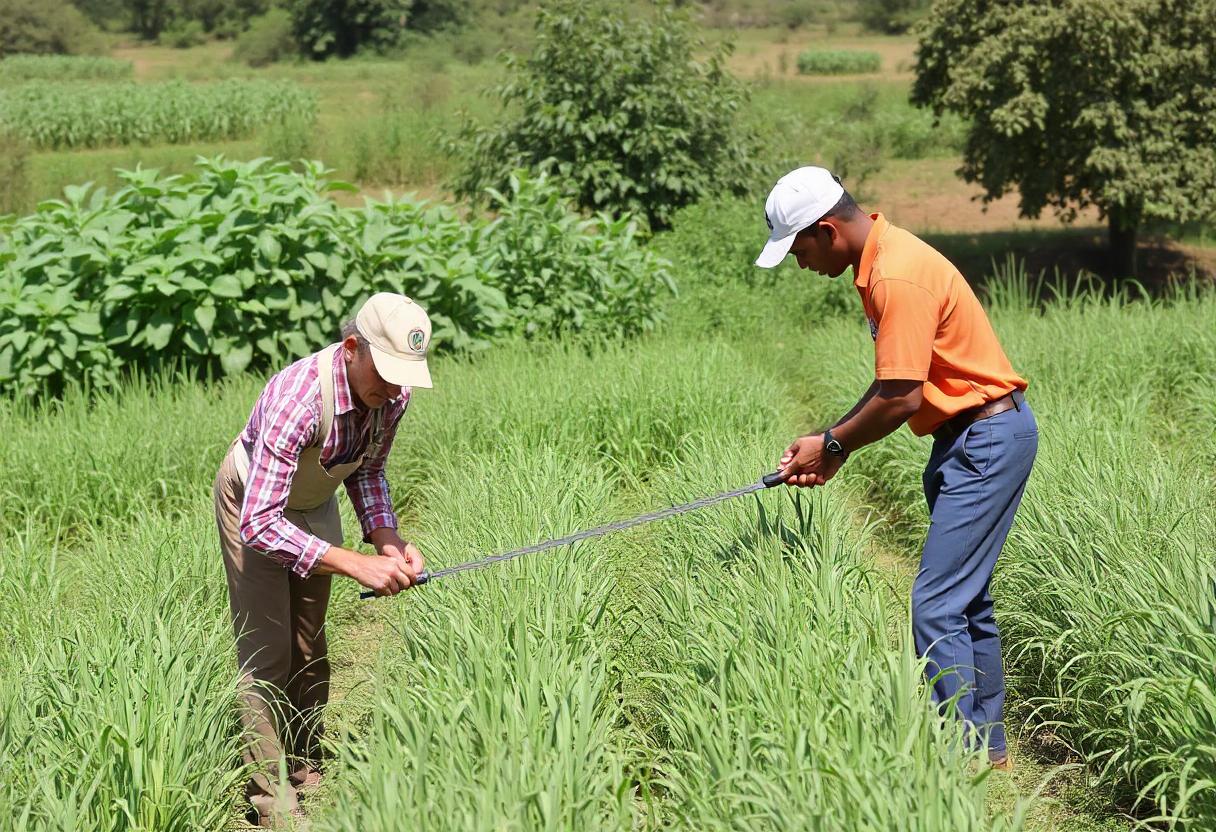
Agriculture research jobs play a critical role in advancing the field of agriculture by driving innovations that increase crop yields, improve soil health, and enhance overall farming practices. These positions are vital for addressing global challenges such as food security, climate change, and sustainable farming practices. Individuals in agriculture research contribute to the development of new technologies and methods that can significantly impact agricultural productivity and sustainability.
Types of Agriculture Research Jobs
Agronomist
Agronomists focus on studying crops and soils to enhance agricultural practices. They work on improving crop production, managing soil health, and developing sustainable farming techniques. Agronomists often collaborate with farmers to implement best practices and increase crop yields.
Plant Scientist
Plant scientists specialize in understanding plant biology and genetics. Their research aims to develop crop varieties with improved resistance to pests, diseases, and environmental stresses. They may also work on genetically modified crops and explore ways to enhance plant growth and productivity.
Soil Scientist
Soil scientists study the composition, structure, and health of soil. They analyze soil samples to determine its fertility and suitability for various crops. Their research helps in developing soil management practices that optimize crop growth and sustainability.
Agricultural Engineer
Agricultural engineers design and develop machinery, equipment, and systems to improve farming operations. Their work includes developing efficient irrigation systems, mechanizing farming processes, and creating technologies that enhance crop production and resource management.
Extension Specialist
Extension specialists focus on transferring research findings and technological advancements to farmers and agricultural professionals. They provide training, workshops, and resources to help farmers adopt new practices and improve their productivity.
Skills Required for Agriculture Research Jobs
Analytical Skills
Agriculture research jobs require strong analytical skills to interpret data, conduct experiments, and draw meaningful conclusions. Professionals must be able to analyze complex data sets and apply their findings to real-world agricultural problems.
Technical Proficiency
A solid understanding of scientific and technical principles is essential for agriculture research roles. This includes knowledge of laboratory techniques, field research methods, and agricultural technologies.
Problem-Solving Abilities
Researchers must possess strong problem-solving skills to address challenges in agriculture. They need to devise innovative solutions to improve crop production, manage pests, and enhance soil health.
Communication Skills
Effective communication is crucial for sharing research findings with stakeholders, including farmers, policymakers, and the public. Researchers must be able to present their results clearly and provide practical recommendations based on their research.
Educational Requirements for Agriculture Research Jobs
Bachelor’s Degree
A bachelor’s degree in agricultural science, plant science, soil science, agricultural engineering, or a related field is typically required for entry-level positions. This provides foundational knowledge in agriculture and research methodologies.
Master’s Degree
Many research positions require a master’s degree, which offers advanced knowledge and specialized skills in a specific area of agriculture research. This degree often involves conducting original research and gaining practical experience.
Doctoral Degree
For those pursuing careers in academia or high-level research positions, a doctoral degree (Ph.D.) is often necessary. This degree involves extensive research, dissertation work, and contributes to the advancement of knowledge in the field of agriculture.
Career Opportunities in Agriculture Research
Academic Researcher
Academic researchers work in universities and research institutions, focusing on conducting research, publishing findings, and teaching. They contribute to advancing agricultural science through their research and academic contributions.
Research Scientist in Government Agencies
Government agencies employ research scientists to work on agricultural policy, environmental impact, and food security. These positions often involve conducting research to inform policy decisions and address national and international agricultural challenges.
Industry Research Positions
Private companies in the agriculture sector hire researchers to develop new products, improve existing technologies, and enhance agricultural practices. These roles often involve working on applied research with a focus on commercial applications.
Non-Profit Organizations
Non-profit organizations focused on agriculture and sustainability employ researchers to work on projects that address global issues such as food security, environmental conservation, and rural development. These positions often involve working on community-based research and initiatives.